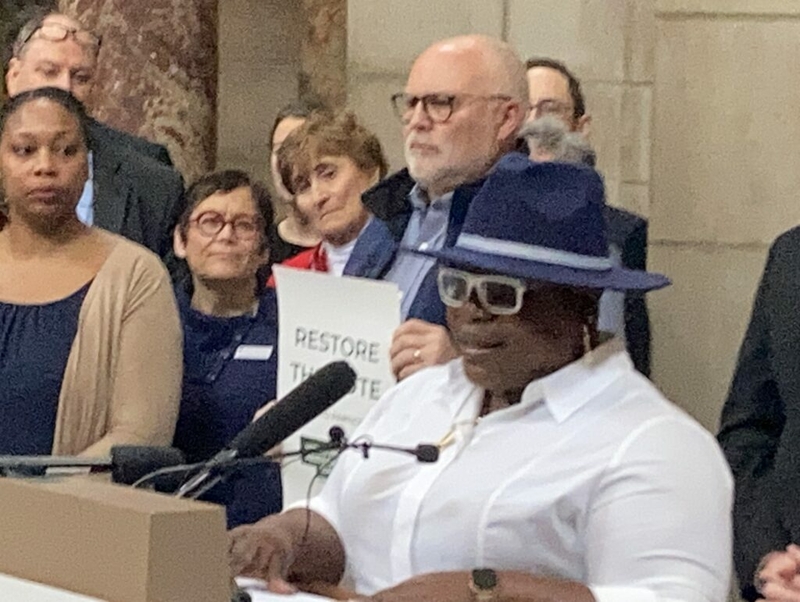Advocates say restoring voting rights for felons would improve public safety

LINCOLN — Advocates for restoring voting rights of convicted felons said Friday that such a step would remove a “punitive” stigma and improve public safety.
“People who are engaged are less likely to reoffend,” said State Sen. Justin Wayne of Omaha, at a press conference sponsored by the Voting Rights Restoration Coalition.
About 20,000 Nebraskans cannot vote because they are serving time in prison, are on parole for a felony crime or have not completed the current two-year waiting period to regain their rights to vote, serve on a jury or run for public office.
Bill would restore rights upon release
Wayne, who chairs the Legislature’s Judiciary Committee, has introduced a measure this year, Legislative Bill 20, that would restore felons’ voting rights as soon as they complete their prison or parole sentence.

Felons who have completed their sentences said at Friday’s press conference that the loss of voting rights disproportionately affects communities of color and leaves reformed felons, who now have jobs and own homes, “marginalized.”
“It’s taxation without representation,” said Demetrius Gatson of the ACLU of Nebraska.
The voting restoration coalition maintains that making felons wait two years after paying their debt to society is like rubbing salt into a wound.

Also introduced this year was a proposed constitutional amendment, LR 4CA, from Omaha Sen. Machaela Cavanaugh.
It would do away with the clause that requires convicted felons to lose their voting rights at any time. Only those convicted of treason would lose their right to vote under the proposal, which would require voter approval.
Two states, Vermont and Maine, and the District of Columbia currently do not take away voting rights of someone convicted of a felony crime.
Cavanaugh, who has introduced similar measures in the past, called removing voting rights “a penalty without a purpose.”
20,000 affected in Nebraska
Nicole Porter, senior director of advocacy for The Sentencing Project, said that 4.6 million people nationally, including 20,000 in Nebraska, are denied the right to vote because they are in prison for a felony or still on parole.
Porter said denying the right to vote is an aspect of the nation’s problem with over-incarceration.
A 2003 study done for the Brennan Center for Justice at New York University suggested that there is a link between civic engagement, voting, and a lower rate of repeat crime.
The Voting Rights Restoration Coalition is a group of 28 organizations, including the ACLU, Black Votes Matter, the NAACP and Civic Nebraska.
Jasmine Harris, director of public policy and advocacy for RISE, a Nebraska prison reentry program, said that with voting rights issues such as voter ID being debated this year, it’s an ideal time to address the voting rights of felons.








